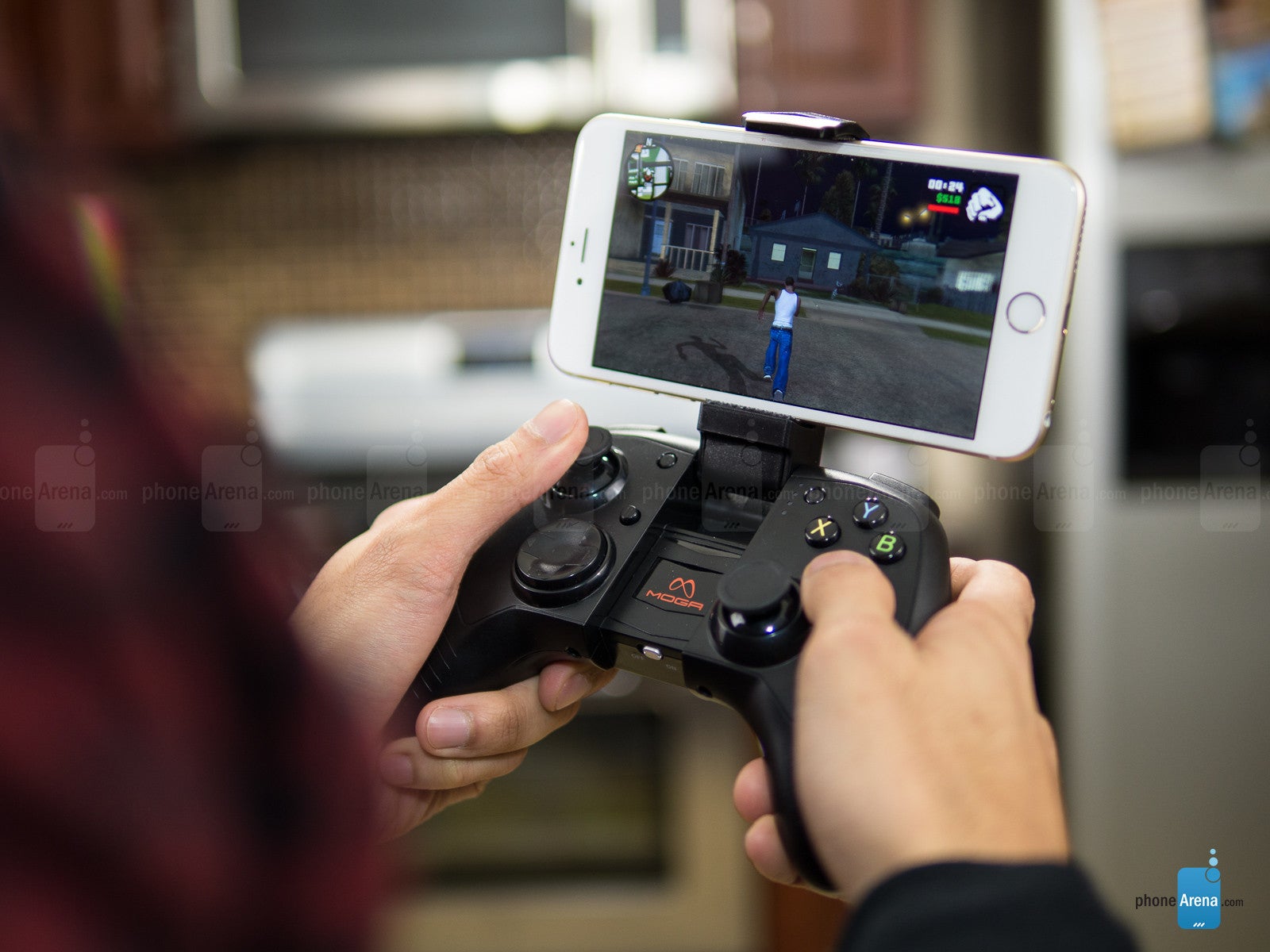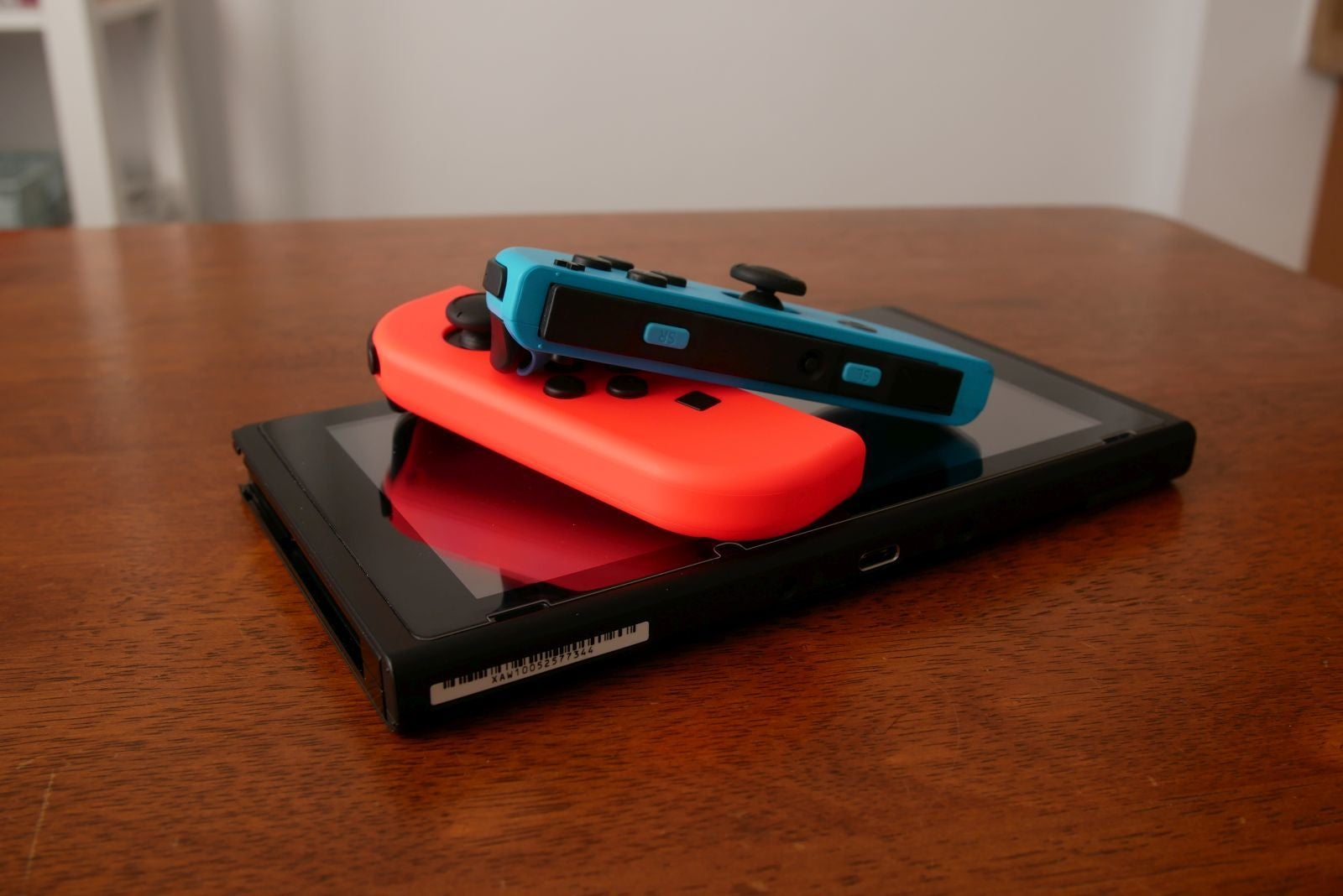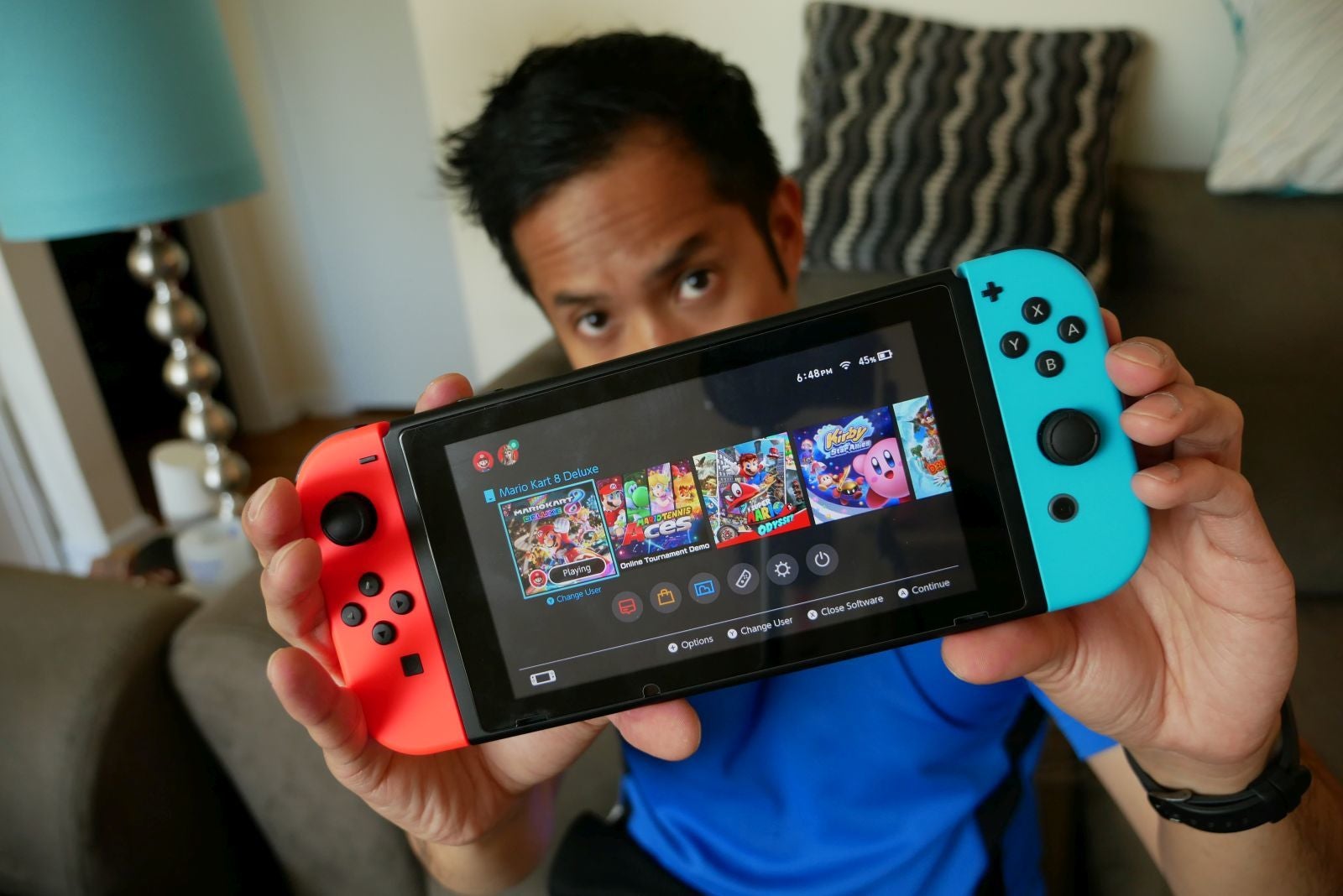The Nintendo Switch is beating smartphone manufacturers when it comes to mobile gaming
This article may contain personal views and opinion from the author.

Very recently, I picked up the Nintendo Switch. I wouldn't consider myself as a hardcore gamer in any way, but I still on occasion find myself firing up my PlayStation 4 whenever a decent title comes along that ignites my interest. With the Nintendo Switch, however, it piqued my interest the moment it was first announced back in 2016. Considering that I was a Sega fan in the early days of the console wars, and subsequently Sony by the time the original PlayStation was released in the mid-90s, it's unbelievable even now thinking that I ended up getting the Switch – more so when I bypassed classic consoles from the famed Japanese company like the original Nintendo, Super Nintendo, and N64.
As much as mobile games have come a long way, they don't seem to have what it takes to keep my interest on a long-term basis. It's really ironic how Nintendo of all the current console giants, was able to reel me into its grasp – while opening up my eyes in the process to realize that smartphone manufacturers have been trying for ages to bridge the gap between consoles and mobile, but without much avail. To be more specific, I'm talking about those hardcore gamers, those who really invest a ton of their time into their games.
And then it dawned upon me, the Nintendo Switch, even in its short existence is already beating all of these mobile manufacturers when it comes to mobile gaming. Even though the Switch is first and foremost a console, it breaks the mold with its uncharacteristic design and portability – drawing inspiration from our mobile devices. I really hope that companies listen up, taking what Nintendo is doing with the Switch, and elevating mobile gaming to the next level.
Mobile gaming from the beginning to now
Ever since my first cell phone, a Nokia 5190, I remember picking it up and playing Snake to kill time. It was crude for sure, nowhere as satisfying as a PlayStation 2 or Microsoft XBOX back in the early 2000s, but it still achieved what we get out of games on-the-go even now. Through those early years, mobile gaming has been relatively isolated to these puzzle and card games, mainly because the hardware in mobile devices wasn't really tuned for gaming. Needless to say, it wasn't a priority for most phone manufacturers back then. Anyone else remember Solitaire preloaded with Windows Mobile phones?
It wasn't until we started to get into today's modern smartphones, iOS and Android devices, that really upped the game to a new level. Games now are complete with beautiful visuals, compelling stories, and deeper gameplay – often requiring some serious investment of time. Come to think of it, most of today's high-end mobile devices can rival the graphics produced by last-generation home consoles. It's amazing how far we've come when it comes down to mobile gaming, so it's a testament in how they can rival dedicated consoles in terms or raw power when you consider how compact they are in comparison.
Interestingly enough, we've had a handful of mobile devices that were specific to gaming. Do you remember the Sony Xperia Play? Or how about 3D gaming courtesy of smartphones like the HTC EVO 3D and LG Optimus 3D, which featured 3D displays that didn't require users to wear glasses. And how can we forget the vast gaming centric devices, like the NVIDIA Shield Tablet or more recently, the Razer Phone? These all were undoubtedly created with mobile gaming in mind, but none of them have been able to really capitalize in bridging the gap.
Personally, I feel as though that the Sony Xperia Play was the closest thing to bridging the gap. Commonly referred to as the PSP phone, it's one of the few phones ever to be imagined and brought to life with an actual integrated gaming pad. I remember how awesome it was to play Gun Bros using the digital sticks, which were used to emulate your standard analog sticks on a controller. On top of that, many classic PlayStation classic games were ported over – allowing me to experience the same console-grade games I remember playing growing up, but now on mobile. Unfortunately, the brakes were applied and we never saw such a thing again after the Xperia Play. What a shame I tell you, it definitely had some promise!
We've also seen several accessories through the years that aimed to deliver that console experience to mobile. Take for example all of those Bluetooth gamepads, which have practical applications over touch controls. For first person shooters that require a multitude of toggles and buttons to manage, these gamepads are essential – providing superior controls over on-screen touch buttons. While we've been given several gamepads to choose from, the problem in most cases is the lack of support from the developers. Frankly, not all games supported them, which reveals the fragmentation that's plagued mobile gaming.

There have been several Bluetooth gamepads released for mobile, which did help to establish a somewhat console-like experience.
A console, but not your average console
All of this leads me back to the Nintendo Switch, which isn't your average gaming console. Nintendo has been through a whirlwind rollercoaster ride, garnering acclaims with past consoles such as the SNES and Wii, but not without failures of its own in the process – like the Wii U for example. Gaming and mobile has been intertwined with one another in a more intimate fashion in only the last decade, but it's just now that we're getting the perfect implementation.
What makes the Nintendo Switch so unique is its design, which improves upon Nintendo's previous efforts with the Wii U – a failed attempt in trying to bridge that console and mobile experience. In terms of the guts, Nintendo hasn’t outright clarified what's under the hood powering its latest generation console. It's been revealed, though, that it's powered by a custom Tegra chipset from NVIDIA. More akin to a mobile device, as it features a 6.2-inch 720p LCD display, there are obviously similarities that paint it as a tablet or phablet – sans any cellular radios though.

The Nintendo Switch's Joy-Cons are undoubtedly one of the most unique things about the console.
The true beauty in the Nintendo Switch is how its game controllers, known as Joy-Cons, are able to quickly snap on or off the Switch. At home, you can remove them from the console and play your games on the big screen – while sitting back and relaxing on your couch. Alternatively, the two Joy-Cons that come packaged with the console can actually be used as two separate gamepads, allowing for multi or cooperative gaming on the go. And of course, what's really satisfying about the Switch is that gaming can continue beyond the home while it's docked – just because you can simply continue where you left off by attaching the Joy-Cons to it and removing it from the dock. It's mobile, which makes it unique amongst home consoles.
This sort of implementation is something that's lacking with today's mobile devices. Sure, using a Bluetooth gamepad can achieve something similar with smartphones and tablets, but they're not quite as effective or ingenious as the Joy-Cons. Nintendo seriously put a lot more thought in this than most mobile or accessory manufacturers, showing me why it's the kind of route that companies may need to follow in the mobile space if they want to be serious about mobile games. Don't get me wrong, smartphones today can easily be transformed into a home console of sorts, but it involves a bit more beyond the intuitive approach we get from the Switch.
Being complacent
Speaking about that, the reason why there's been a lack of innovation when it comes to gaming from a mobile perspective is that developers, manufacturers, and publishers have all become complacent. They view mobile gaming in a totally different light, than say, these console manufacturers. And you know what? The evidence is apparent by just visiting either the iOS or Android app stores, where the majority of games leverage the same model – touch games that have you tapping and swiping your way through them. And don't get me started on all of those endless runner clones that seem to be popular.
I'm not saying that they're terrible, but rather, they don't really have what it takes to engage me on a long-term basis. Most of the time I just resort to playing them to kill time during a commute, or beat my previous high score. Recent mobile games that I've personally played, like OneMoreLine and Snake vs Block, are two prime examples of what I'm talking about. Then you have those endless runner and puzzle games, which are a staple with mobile gaming – with barely any learning curve associated with them! Well, I suppose that's their intent, offering anyone to play them without much skill involved.
The reason why there's been a lack of innovation when it comes to gaming from a mobile perspective is that developers, manufacturers, and publishers have all become complacent.
They're fun, especially when you're competing against a friend to achieve bragging rights. On the other end of the spectrum, however, there are still many other notable mobile games that get my attention – such as the case with console ports, like Grand Theft Auto. Then again, the controls scheme on mobile tends to diminish my desire to play them. For a while, I was invested in a few first person shooters on mobile, like the Dead Trigger, Modern Combat, and NOVA series. Visually, these games were utterly amazing looking, rivaling consoles to some extent. As I mentioned already, the controls with these types of games were never convincing to me – so after a while, it just became boring when auto-targeting would constantly kick in.
Looking at the Switch's success and innovating mobile gaming
Thanks to the Nintendo Switch, it has opened my eyes about an aspect of mobile gaming that's lacking. That's co-operative gameplay, where two or more players can join in on the fun using one device. I haven't come across that yet with a smartphone or tablet, so that's an area of opportunity. I bet that it's feasible when you can pair multiple Bluetooth gamepads to a device, but to date, I have yet to see a game that leverages that. In comparison, the Nintendo Switch encourages social play right out of the box – since it's technically packaged with two Joy-Cons. Buy another pair, then you'll have a total of four controllers to play with friends.
And that's what I love best about the Switch, versus mobile gaming with either a smartphone or tablet. There's a social aspect to it on a local basis, wherein you play games together for a common goal. True, there are some mobile games that offer multi-play online, but not locally to the same degree we get from the Switch. Mobile manufacturers will really need to take grasp of the Switch's success and implement new innovations that'll take mobile gaming to that next level.
While there's no standard to abide by, unlike the Switch, it would be nice at the very least to first emulate the Joy-Cons for mobile – while also getting developers on board to offer local play. It'd be nice, in fact, if I were able to start a game while on a flight, and later on, have my neighbor next to me get in on the action as well. It's a nice first start for sure! However, there's still more needed to really make mobile gaming just as compelling as what I find with the Switch.

It's really incredible how the Nintendo Switch is redefining mobile gaming.
Nintendo has been branching out beyond its consoles, entering new territory on mobile with games like Super Mario Run and Pokemon Go, proving that Nintendo's beloved characters are huge draws – even on mobile. The possibilities are endless, if and only if more emphasis is given to mobile gaming from hardware manufacturers and gaming developers. The latter especially, seeing that I've played through my fair share or poorly executed ports of classic Nintendo franchises like Mario Kart. Have you tried playing Beach Buggy Racing? That's a perfect example of a terrible emulation of Mario Kart!
For now, though, most of my gaming will still be done on the Nintendo Switch. Considering how Nintendo is redefining console gaming in the process, it'll be interesting to see what other additions will be added to the Switch's arsenal to further enhance its gaming experience. As for mobile gaming, it's not going away entirely either, but it's still largely going to be for those times when I want to kill time. I wouldn't invest any additional time beyond that.
How do you feel about mobile gaming? What kind of changes or additions would you like to see? I'm curious to know, so let me know in the comments below









Things that are NOT allowed: